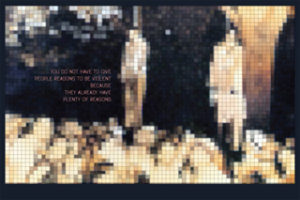Anjali Gera Roy (Indian Institute of Technology, Kharagpur) reviewed Questioning Hybridity, Postcolonialism and Globalization in Postcolonial Text (2012, vol.7-1)
 “Coming more than two decades after the emergence of postcolonialism as a disciplinary formation, Amar Acheraïou’s Questioning Hybridity, Postcolonialism and Globalization is a welcome interrogation of hybridity that challenges postcolonialism’s obsessive preoccupation with hybridity. The book’s greatest strength lies in its disengagement of hybridity from its privileged position in postcolonial theory and in the light it throws on how it has been historically perceived in Western and non-Western cultures. By deconstructing hybridity as a practice, discourse and ideological construction, the book unpacks the positive and negative meanings of hybridity through history and its imbrication with the discourse of metissage not only to demonstrate that hybridity has been a norm rather than an aberration in major world cultures and civilizations but also to ‘resituate the power dynamics and multi-rooted nature of hybridity.’ While the book expertly glides from ancient Greece, Persia and Rome to the present in order to juxtapose alternative perceptions of hybridity against its postcolonial valorization and deftly returns the concept to the material realities of individuals and groups living under the difficult conditions of postcolonialism, it stops short of proposing a demotic theory of hybridity. […].
“Coming more than two decades after the emergence of postcolonialism as a disciplinary formation, Amar Acheraïou’s Questioning Hybridity, Postcolonialism and Globalization is a welcome interrogation of hybridity that challenges postcolonialism’s obsessive preoccupation with hybridity. The book’s greatest strength lies in its disengagement of hybridity from its privileged position in postcolonial theory and in the light it throws on how it has been historically perceived in Western and non-Western cultures. By deconstructing hybridity as a practice, discourse and ideological construction, the book unpacks the positive and negative meanings of hybridity through history and its imbrication with the discourse of metissage not only to demonstrate that hybridity has been a norm rather than an aberration in major world cultures and civilizations but also to ‘resituate the power dynamics and multi-rooted nature of hybridity.’ While the book expertly glides from ancient Greece, Persia and Rome to the present in order to juxtapose alternative perceptions of hybridity against its postcolonial valorization and deftly returns the concept to the material realities of individuals and groups living under the difficult conditions of postcolonialism, it stops short of proposing a demotic theory of hybridity. […].
It is in his invocation of anti-colonial discourse as a form of resistance to globalization that the author connects globalization with postcolonialism by projecting it as a form of neocolonialism and steers postcolonialism from its cultural and spatial turn to a genuinely counter hegemonic form of resistance to global capitalism. By emphasizing these links between colonialism and neocolonialism, the book sets a new agenda for postcolonial theory.
The book breaks new grounds in disentangling hybridity from the postcolonial hybridity discourse, in establishing the relationship between purity, hybridity and power and in interrogating the discursive appropriation of hybridity through its uses in the lived experiences of large populations. In pointing to the intersection between the colonial, postcolonial and neo-colonial in their convergence on the discourse of hybridity, it also sets a new direction for postcolonial studies.”
